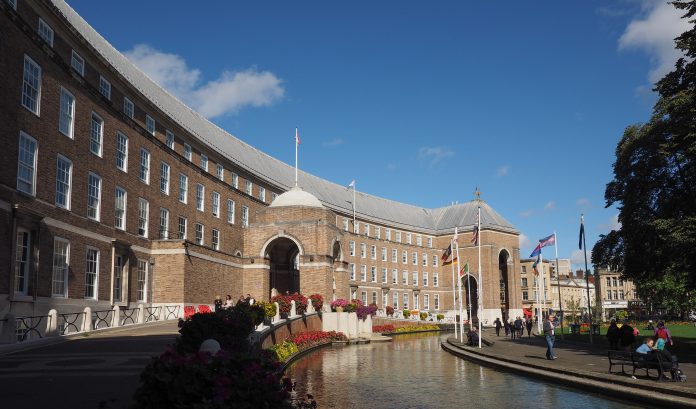Xavier Longan, Lead for Partnerships and Operations in the UN Sustainable Development Goals Action Campaign, discusses how local level transformation could be a turning point for people and the plant during a global crisis
The Sustainable Development Goals (SDGs) agreed by the UN General Assembly in 2015 represent a blueprint for a more prosperous future and resilient planet. The Goals started as a political commitment, but in the wake of the COVID-19 health crisis they have become urgent, concrete priorities claimed by people and leaders everywhere.
The issues encapsulated by the Goals such as good jobs, social protection, equal access to quality education and health services, climate action and clean water are top imperatives for everyone. And in terms of the environment, the COVID-19 confinement measures have made all the more apparent the positive effects of decreasing the human footprint on nature.
While on one hand, local governments are at the receiving end of the demand for action and delivery on these areas, they are also equally the best-placed to directly and efficiently reach out to new and existing audiences, which are more aware of and sensitive to the Goals and to what they represent.
Beginning to transform
I believe that transformative change that aligns with the SDGs is now possible and more urgent than ever. Until recently, the enormous commitment required to achieve this agenda by the year 2030 was perceived as too costly and difficult for many of those who had the power to enact change. Yet, the pandemic’s shattering consequences have fuelled debate and momentum with the potential to achieve and even accelerate this transformation. In addition, the pandemic has also confirmed how cities and their governments really are, day in day out, on the frontline of the service provision efforts to improve the lives of citizens.
As a result, local governments and their constituents could be the most efficient agencies in turning life-threatening challenges into life and planet-saving opportunities. Mobilizing and acting for the SDGs and the 20230 Agenda will lead to reimagining societies, economies and governance, to achieve not just short-term gains, but long-term commitments to human rights and sustainability for mutual benefit. From safe and secure cycle routes across cities, sustainable building projects, to the digital transformation of citizen engagement so that local services are accessible to everyone, necessity has made the public sector creative, and this creativity may, and I argue shall be nurtured to outlive the current crisis. Business as usual is no longer an option.
Through a butterfly effect, individual action can unleash tremendous power
The COVID-19 response has consistently spotlit the impacts of individual actions and behaviours in addressing complex global challenges. By taking individual action at local level -be it observing the physical distancing protocols, washing hands or staying at home- people in many countries have managed to flatten the curve and save millions of lives.
Around the world, individuals have inspired and comforted each other with simple, spontaneous acts of everyday heroism that are sustaining lives and communities. This illustrates with stark clarity that local action can be the quickest, easiest and most effective in having global impact; as a consequence, it has now been proven by and large that local level policies can play a pivotal role in changing global trends. This can itself create a butterfly effect and contribute to the world’s recovery.
The idea of ‘global solidarity’ is no longer an abstraction, but an imperative that people everywhere feel in their daily lives. COVID-19 represents a challenge that no single local government or any country can face alone. A spontaneous solidarity movement is emerging, lifting hopes which unite more than divide us and that are making us all work together for a better world.
Channelled well, this movement is a powerful force to respond to the pandemic, and to advance local and global cooperation grounded in the values of multilateralism, universality and interconnectedness. Local governments and stakeholders from all sectors can jointly effect change by leveraging this momentum and supporting local solutions to the current challenges.
A turning point for people and the planet
The current global COVID-19 crisis can be a turning point for the global population and for the planet itself, where the recovery efforts are guided by the Sustainable Development Goals and the 2030 Agenda, and inspired by local action and local stakeholders.
I will be discussing all these issues alongside Deputy Mayor of Bristol, Asher Craig, and BookingLive’s Head of COVID-19 response Ismael Velasco at a virtual roundtable on 8th July where we will examine local authority technology breakthroughs. It is my hope that the solidarity movement and creative solutions that have emerged from the COVID-19 global health crisis will represent a turning point for local governments and everyone and lead us to a better and more resilient future leaving no one behind.











